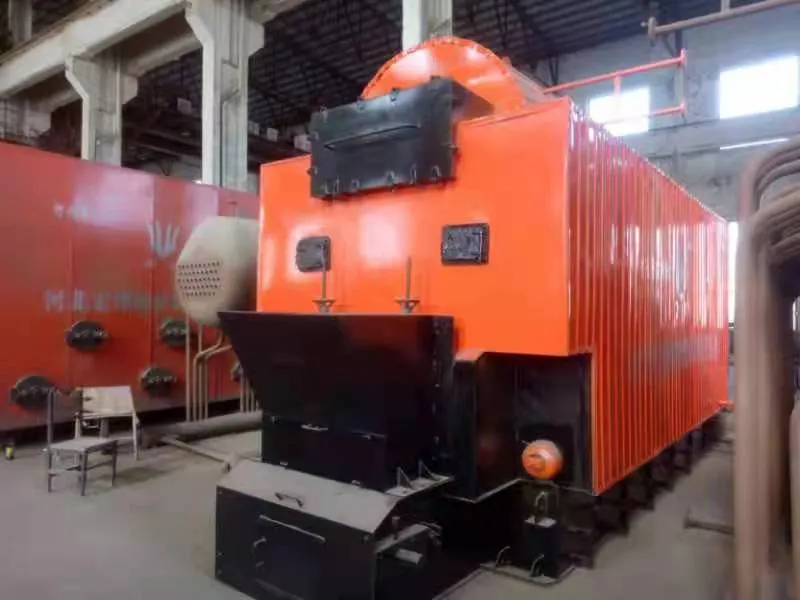
Nov . 24, 2024 13:30 Back to list
Understanding the Functionality and Efficiency of Oil Fired Steam Boilers
Understanding Oil-Fired Steam Boilers Applications and Advantages
Oil-fired steam boilers are essential components in various industrial, commercial, and residential applications, providing reliable and efficient heat and steam generation. These boilers utilize different types of oil as a fuel source, most commonly heating oil or diesel, to produce steam for heating, power generation, and other processes. As industries evolve, the demand for efficient energy sources becomes more pronounced, making oil-fired steam boilers a significant focus for energy professionals and facility managers.
How Oil-Fired Steam Boilers Work
The operation of an oil-fired steam boiler involves several key components that work together to convert liquid fuel into steam. The process begins with the oil being stored in a tank and pumped into a burner, where it is atomized into fine droplets. This atomization process ensures efficient combustion when mixed with air. The burner then ignites the oil, generating a flame that heats the water within the boiler’s shell.
As the water absorbs heat, it begins to convert into steam. The produced steam can be directed into various applications, such as heating systems, industrial processes, or even electrical generation. Based on the design, some oil-fired steam boilers may also have economizers or superheaters that further enhance efficiency by recovering waste heat from flue gases.
Efficiency and Environmental Considerations
One of the advantages of oil-fired steam boilers is their efficiency. Many modern systems are designed to operate at high efficiencies, often above 85%, thanks to advances in burner technology and construction materials. Additionally, efficiency can be enhanced through regular maintenance and the incorporation of control systems that optimize fuel usage according to the actual demand for steam.
While oil-fired boilers provide effective heating solutions, they also pose environmental challenges. Combustion of fossil fuels, including oil, results in the release of greenhouse gases and pollutants. To mitigate these concerns, many manufacturers are evolving their technologies to produce boilers that minimize emissions, adhere to strict regulatory standards, and optimize combustion processes.
oil fired steam boiler

Applications of Oil-Fired Steam Boilers
Oil-fired steam boilers find applications across numerous industries. In manufacturing, they generate steam for processes such as sterilization, pasteurization, and drying. For instance, in food processing, steam is crucial for maintaining hygiene and quality control. The petrochemical industry also employs these boilers for the separation and refining processes, where high-temperature steam is required.
In the commercial sector, oil-fired steam boilers are often used in facilities like hospitals and schools for heating, providing hot water, and even powering steam-driven turbines for electricity generation. These facilities benefit from the versatility of steam applications, enabling combined heating and power systems for greater efficiency.
Considerations for Choosing an Oil-Fired Steam Boiler
When selecting an oil-fired steam boiler, several factors should be considered. Firstly, the specific steam demands of the operation must be assessed. This includes understanding the required pressure and temperature of the steam, as well as the volume needed over a specified period.
Additionally, fuel availability and cost play crucial roles in decision-making. Depending on regional infrastructure and energy prices, certain fuels may provide more economical options than others. The boiler's efficiency rating and associated emissions levels should also be carefully evaluated to ensure compliance with regulatory requirements and sustainability goals.
Conclusion
Oil-fired steam boilers are vital for various industries, providing efficient solutions for heating and steam generation. As technology advances, these systems are becoming more efficient and environmentally responsible, reducing their carbon footprint while maintaining robust performance. Understanding the operational principles, applications, and considerations involved in these boilers can help businesses and facilities make informed decisions that enhance productivity and sustainability. With the ever-growing focus on energy efficiency and environmental impact, oil-fired steam boilers will continue to evolve and adapt to meet the demands of modern energy consumption.
-
High-Efficiency Commercial Oil Fired Steam Boiler for Industry
NewsJul.30,2025
-
High-Efficiency Biomass Fired Thermal Oil Boiler Solutions
NewsJul.30,2025
-
High Efficiency Gas Fired Thermal Oil Boiler for Industrial Heating
NewsJul.29,2025
-
High-Efficiency Gas Fired Hot Water Boiler for Sale – Reliable & Affordable
NewsJul.29,2025
-
High Efficiency Biomass Fired Hot Water Boiler for Industrial and Commercial Use
NewsJul.29,2025
-
High-Efficiency Biomass Fired Hot Water Boiler for Industrial Use
NewsJul.28,2025
Related PRODUCTS






















